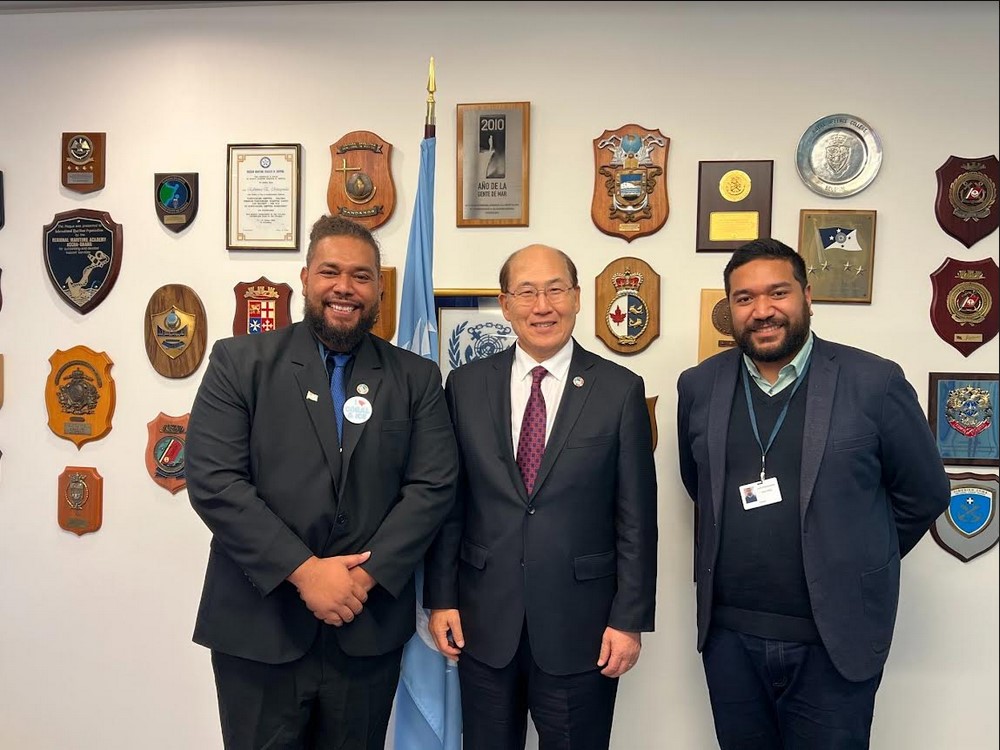

$80 billion p.a. in pollution levies on the table at IMO
And how much will be committed to the priority needs of the climate vulnerable depends on the skill and stamina of our Pacific negotiating teams over the next 6 months. This week the Republic of the Marshall Islands and the Solomon Islands lodged four new submissions at the International Maritime Organization calling for greatly increased and 1.5 commensurate levels of ambition, commitment to an equitable global transition and for shipping to agree a high price on GHG. It is the largest and most ambitious carbon price call for any sector in the world. They need other Pacific high ambition voices to join them.
The science and the economics are clear, the transition requires a paradigm shift, but it is technically possible and achievable – if we go hard now. And it could be a game-breaker for Pacific states. In Fiji we have known this for a decade. It was the first lesson from a brand-new research program I founded with then USP Economics Professor Prasad in 2012. A decade on, the costs and risks are much higher. Our research partners at UCL calculate that failure to act will cost shipping a $100billion p.a. from now on in. Delaying will always cost more. The Pacific will always pay the highest price if it isn’t proactive. This time, thanks to the continual leadership of the Marshalls and Solomons, it is on the front foot.
Since the late Tony de Brum led a high-level diplomatic delegation to the IMO in 2015, a steady and disciplined high-ambition Pacific coalition, supported by the best available local and international research, has continued to consistently move the dial on forcing 1.5 to the top of shipping's emissions reduction program.
In July the IMO must agree its revised Strategy for GHG emissions. It will be a watershed moment for this UN agency – its credibility is on the line. Will this large and essential emitting sector choose to lead the necessary climate response and commit to a hard hitting package of measures to achieve it. It is being called shipping's 'trillions transition', the greatest investment opportunity in shipping's history. Today we see clear evidence of large industry – Maersk, Trafigura, Lloyds, etc – and big shipping countries – Norway, Korea, China, Japan, Singapore – positioning their economies to benefit from next generation, GHG free shipping. But it will come at a global cost – one currently borne by the smallest and most vulnerable, and by future generations.
At the heart of IMO’s negotiations is the question of what to do with the revenues that the Strategy will generate? It has taken the Pacific five years of patient diplomacy to get this most critical issue back on the agenda. There is now general agreement that shipping will put a price on its emissions and that a byproduct of a market based measure is the money they raise. The Marshall Islands and Solomon Islands proposal is by far the most ambitious – the World Bank values it at between $60-80 billion per year. The Pacific is calling for it to be in place by 2025. Other proposals are less ambitious but would still raise significant sums. The Japanese counter proposal, for example, is valued at about $40 billion and would almost all go to mitigation.
The hard work of our tiny Pacific delegations at IMO means that the concept of an Equitable Transition, one that leaves no state is left behind, is squarely in the frame. Consistent effort by Marshalls, Solomons, Tonga, Tuvalu, Kiribati, Vanuatu and Fiji has successfully ensured that "the particular needs of SIDS & LDCs" and "Equitable Transition" are now firmly cemented into the text. But what that means in practice and how well the Pacific is positioned to maximize the benefits from all this diplomatic effort will be the test back at home.
The hard yards at IMO are the key to unlocking much needed financing revenues for transitioning our domestic fleets to better and cleaner technologies and more appropriate and affordable shipping. For this, the Pacific needs billions and it cant be all or even mostly loans. And it is key to much more. What is the share of a 'trillions transition' that is needed if our states are not to be left behind? And how will we be compensated for the inevitable disproportionate increase in shipping costs our countries will inevitably face?
I note the recent Samoan suggestion that increased shipping costs might be met by owning the container ship. However, I assure Samoa that any ship that they own that runs on fossil fuel is going to be an ever-increasing cost item. The solution to the shipping dilemma and future shipping costs rests with the skill of Pacific delegations at IMO - now. They have worked diligently and quietly for us for the last seven years. They need and deserve our countries' full support – now.

Mr. Kitack Lim, Secretary-General of the International Maritime Organization, flanked by members of the Pacific Delegation, John Taukave (L) and John Kautoke (R) during the Marine Environment Protection Committee (MEPC) - 79th Session.
Author: Dr Peter Nuttall, Micronesian Centre for Sustainable Transport
Email: pete@s4sfiji.com